High Risk Inguinal Hernia Surgery in Jayanagar, Bangalore
An inguinal hernia may start as a minor bulge but can escalate into a serious medical concern if not addressed on time. For certain individuals, underlying health conditions make this condition particularly complex — and that’s when High Risk Inguinal Hernia Surgery becomes essential. In such situations, the surgery requires a highly skilled surgeon who can ensure safety without compromising effectiveness.
Global data indicates that hernias affect nearly 220 million people worldwide, with inguinal hernias making up the majority. In India, the prevalence is estimated to be around 10% of the population, but the risks increase significantly in elderly patients or those with chronic health issues.
Dr. Rajeev Premnath, a renowned Laparoscopic Surgeon in Jayanagar, explains:
“High-risk hernia cases often involve patients with heart disease, diabetes, obesity, or advanced age. Many of these surgeries today can even be performed under local anaesthesia, offering greater comfort and reduced risks. My role is not just to repair the hernia but to ensure the journey to recovery is safe, precise and reassuring.”
So, what makes high-risk hernia surgeries safer and more effective today than ever before? Let’s take a closer look.
Advanced Surgical Options for High Risk Inguinal Hernia by Dr. Rajeev Premnath
When dealing with high-risk hernia cases, standard surgical methods may not suffice. What sets advanced techniques apart is the ability to minimize trauma, reduce blood loss and allow patients to recover faster.
Dr. Rajeev Premnath, an accomplished Hernia Specialist in Jayanagar, offers a comprehensive range of surgical solutions tailored for complex patients. These include:
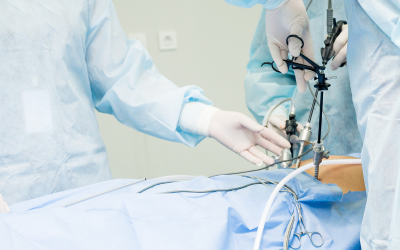
Laparoscopic Repair
In this method, the surgeon makes a few tiny cuts instead of one large cut. A small camera is used to clearly see the inside and special instruments are inserted to repair the hernia. Because the cuts are small, patients usually have less pain, fewer complications and a quicker recovery.
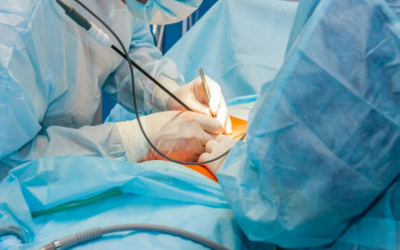
SILS (Single Incision Laparoscopic Surgery)
Unlike regular laparoscopy that needs multiple small cuts, SILS uses just one cut, usually through the belly button. This makes the scar almost invisible and reduces discomfort. Patients often find it easier to get back to their daily activities since the body has less to heal.
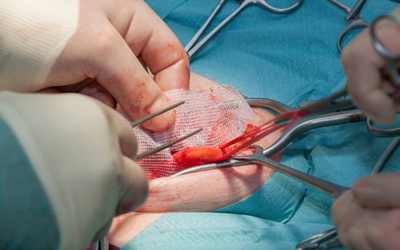
3D Mesh Hernia Repair
Here, a specially designed mesh is placed to strengthen the weak spot in the abdominal wall. The 3D design allows it to fit securely, giving better support and reducing the chances of the hernia coming back. This makes the repair more reliable in the long term.
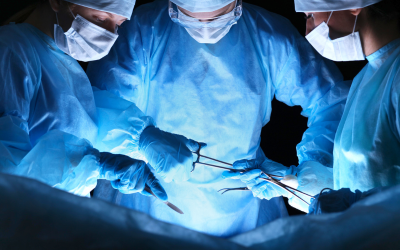
Hybrid Approaches
Sometimes, neither open surgery nor laparoscopy alone is the perfect choice for a complex case. In such situations, the surgeon may combine both methods. This approach allows maximum safety and precision, especially for delicate or recurrent hernias.
As Dr. Rajeev Premnath, a veteran Day Care Surgery Head in Jayanagar, shares:
“No two hernias are the same, especially in high-risk patients. The art of surgery lies in adapting techniques that safeguard the patient’s health while delivering a lasting solution.”
Considering whether minimally invasive methods could suit your specific condition? Explore the advantages of advanced hernia repair techniques for safer outcomes.
But who exactly falls into the high-risk category where such specialized care is necessary?
Who Requires High Risk Inguinal Hernia Surgery?
Not every patient with a hernia is classified as high-risk. However, certain conditions and medical histories demand extra precautions. Patients who may require high risk hernia repair include:
Elderly individuals : Age-related changes slow healing and increase anaesthetic risks.
Diabetics: Higher susceptibility to infections and delayed wound healing.
Individuals with recurrent hernias : Re-operations pose technical challenges.
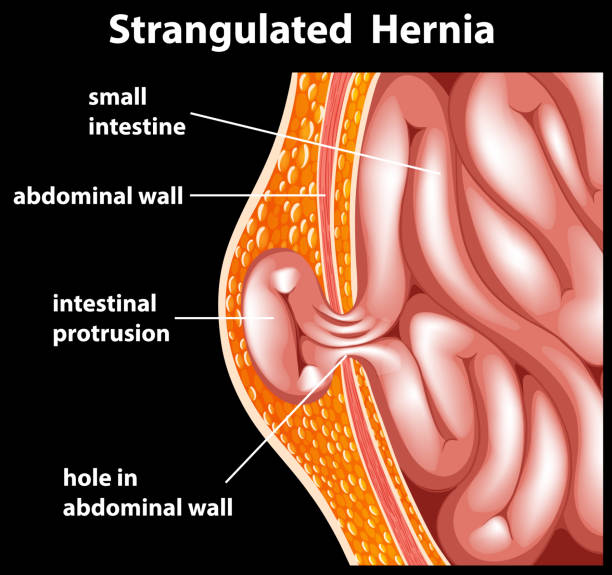
Those with obesity: Excess abdominal fat puts strain on the surgical site.
Cardiac or pulmonary patients: Greater vulnerability under general anaesthesia.
The risks in these cases don’t mean surgery is unsafe; rather, it highlights the need for a surgeon with expertise in tailoring the approach to reduce complications.
As Dr. Rajeev Premnath, a seasoned Proctology and Laparoscopy Expert in Jayanagar, notes:
“High-risk does not mean untreatable. It simply means the surgeon must anticipate the challenges, mitigate the risks and adopt methods that ensure both safety and success.”
Now that we know who needs specialized care, how does the surgeon’s expertise influence the journey?
Dr. Rajeev Premnath’s Specialized Approach to Complex Hernia Cases
Experience and precision make all the difference in high-risk scenarios. Dr. Rajeev Premnath, an internationally trained Laparoscopic Consultant in Jayanagar, has mastered advanced techniques in Italy, Germany and France — skills that directly benefit patients facing complex hernia conditions.
His approach involves:

Detailed Preoperative Evaluation:
Understanding cardiac, diabetic, or respiratory risks.

Customized Anaesthesia Planning:
Often preferring regional or local anaesthesia when feasible.

Minimally Invasive Precision:
Reducing tissue trauma and blood loss.

Enhanced Recovery Protocols:
Focused on early mobility, pain control and patient comfort.
This comprehensive strategy ensures that every stage of care from diagnosis to recovery is managed with utmost attention to detail.
Wondering if a specialized approach could make surgery safer for you or a loved one? Learn how tailored surgical strategies address complex health needs effectively.
Beyond expertise, why are minimally invasive techniques particularly valuable for high-risk patients?
Benefits of Laparoscopic and Minimally Invasive Techniques in High Risk Patients
For patients with heightened medical risks, the choice of surgical method can significantly influence recovery. The benefits of minimally invasive surgery in this context are noteworthy:
Smaller Incisions Lower chance of infection and quicker wound healing.
Reduced Blood Loss Vital for patients with heart or kidney conditions.
Shorter Hospital Stay Minimizes exposure to hospital-related infections.
Early Return to Activity : Prevents complications like bed sores or pneumonia.
Lower Postoperative Pain: Enables better breathing and mobility, especially important in elderly or cardiac patients.
These advantages not only reduce immediate risks but also enhance long-term quality of life.
As Dr. Rajeev Premnath, a trusted Surgical Innovator in Jayanagar, emphasizes:
“Minimally invasive surgery isn’t just about smaller cuts — it’s about rethinking recovery. For high-risk patients, it means reducing every possible burden on the body while ensuring the hernia is securely repaired.”
All these factors raise an important question — why place your trust in this particular surgeon for such delicate procedures?
Why Choose Dr. Rajeev Premnath for High Risk Inguinal Hernia Surgery ?
Reasons patients prefer his care:
26+ years of surgical expertise with thousands of successful hernia cases.
Head of Day Care Surgery at the prestigious Ramakrishna Group of Hospitals.
International training in specialized hernia repair methods.
Patient-first philosophy, ensuring treatment aligns with comfort and lifestyle.
Comprehensive care, from diagnosis to long-term follow-up.
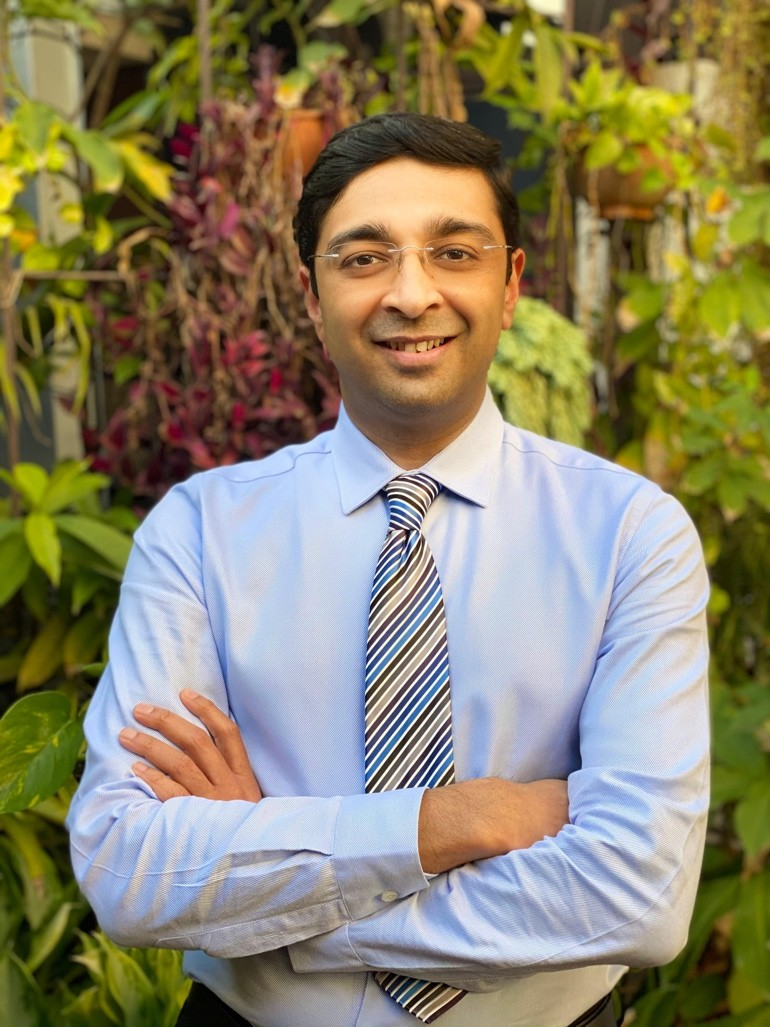
Every patient is treated not just as a clinical case but as an individual with unique needs and expectations. This empathetic approach is what sets the clinic apart.
Still have questions in mind about this procedure? Let’s address them one by one.
Frequently Asked Questions
1. Is hernia treatment safe for elderly patients with other health issues?
Yes, with the right precautions. Modern surgical methods under regional or local anaesthesia significantly reduce risks for elderly individuals with multiple health concerns.
2. How long does recovery usually take after complex hernia surgery?
Recovery depends on the patient’s health, but minimally invasive methods often allow patients to return to light activity within a week and full activity in a few weeks.
3. What happens if a high-risk inguinal hernia is left untreated?
Delaying treatment increases the chance of strangulation, where blood supply to the intestine is cut off. This can be life-threatening and requires emergency surgery.
4. Are there alternatives to surgery in high-risk cases?
For certain patients, supportive measures like trusses may be used temporarily, but surgery remains the definitive solution to prevent complications.
5. Can diabetes or obesity be managed before surgery to improve outcomes?
Yes. Surgeons often recommend optimizing blood sugar levels and weight management before surgery to lower risks and improve recovery rates.
Curious about how individual health factors may influence surgical decisions? Seek guidance from a specialist to understand safe and effective treatment options.
Disclaimer: This page is for informational purposes and not for promotional use.
